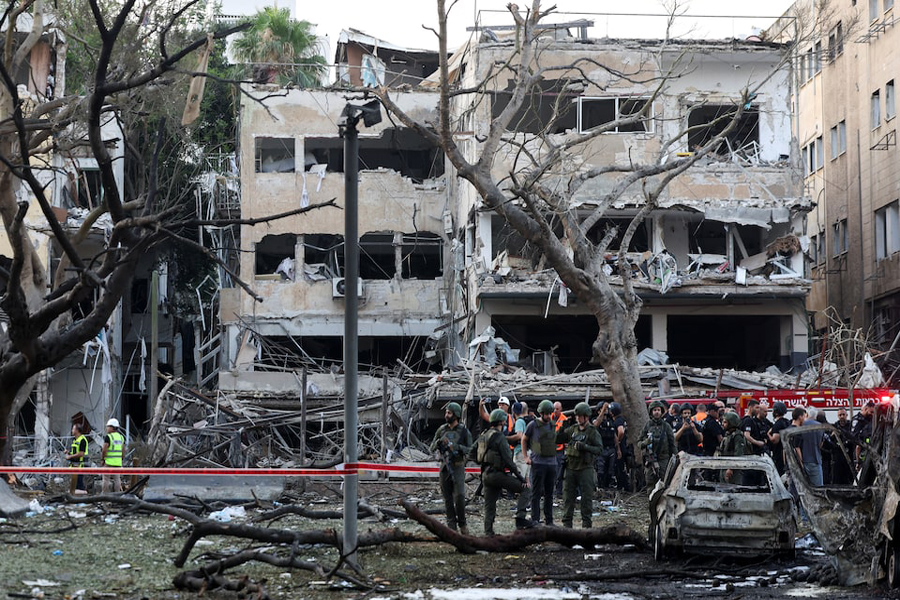

Iranian missiles struck Israel's Tel Aviv and the port city of Haifa in an early morning raid on Monday, destroying homes and fuelling concerns among world leaders at this week's G7 meeting that the battle between the two old enemies could lead to a broader regional conflict.
Israel's national emergency service said three people were killed in the country's centre while dozens more were wounded in the overnight strikes, part of a wave of attacks by Tehran in retaliation for Israel's pre-emptive strikes targeting Iran's nuclear and ballistic missile programmes that began on Friday, according to Reuters.
Search and location operations were underway in the port city of Haifa where around 30 people were wounded, emergency authorities said, as dozens of first responders rushed to the strike zones. Fires were seen burning at a power plant near the port, media reported.
Video footage showed several missiles over Tel Aviv and explosions could be heard there and over Jerusalem. Several residential buildings in a densely populated neighbourhood of Tel Aviv were destroyed in a strike that blew out the windows of hotels and other nearby homes just a few hundred meters from a US Embassy premises in the city.
'NEW METHOD'
Iran's Revolutionary Guards said the latest attack employed a new method that caused Israel's multi-layered defence systems to target each other.
"The initiatives and capabilities used in this operation, despite the comprehensive support of the United States and Western powers and the possession of the most up-to-date and newest defence technology, led to the successful and maximum hitting of the missiles on the targets in the occupied territories," it said.
The Israeli military did not immediately respond to a request for comment on the strikes. Israeli officials have repeatedly said the defence system is not 100 per cent and warned of tough days ahead.
At least 10 people in Israel, including children, were killed in earlier strikes, authorities there had said.
The death toll in Iran had reached at least 224, with 90 per cent of the casualties reported to be civilians, an Iranian health ministry spokesperson said.


 For all latest news, follow The Financial Express Google News channel.
For all latest news, follow The Financial Express Google News channel.